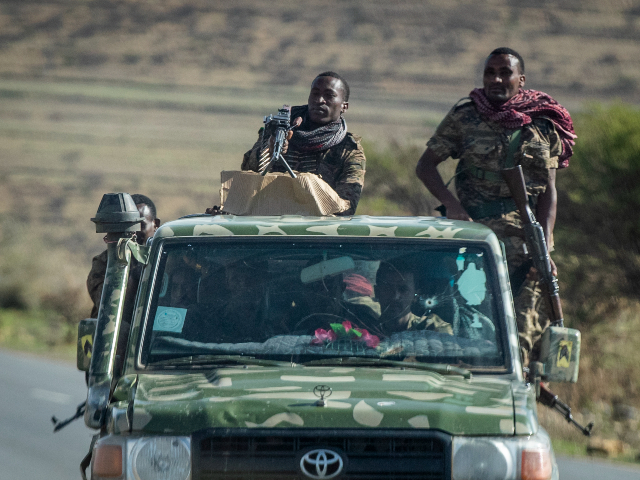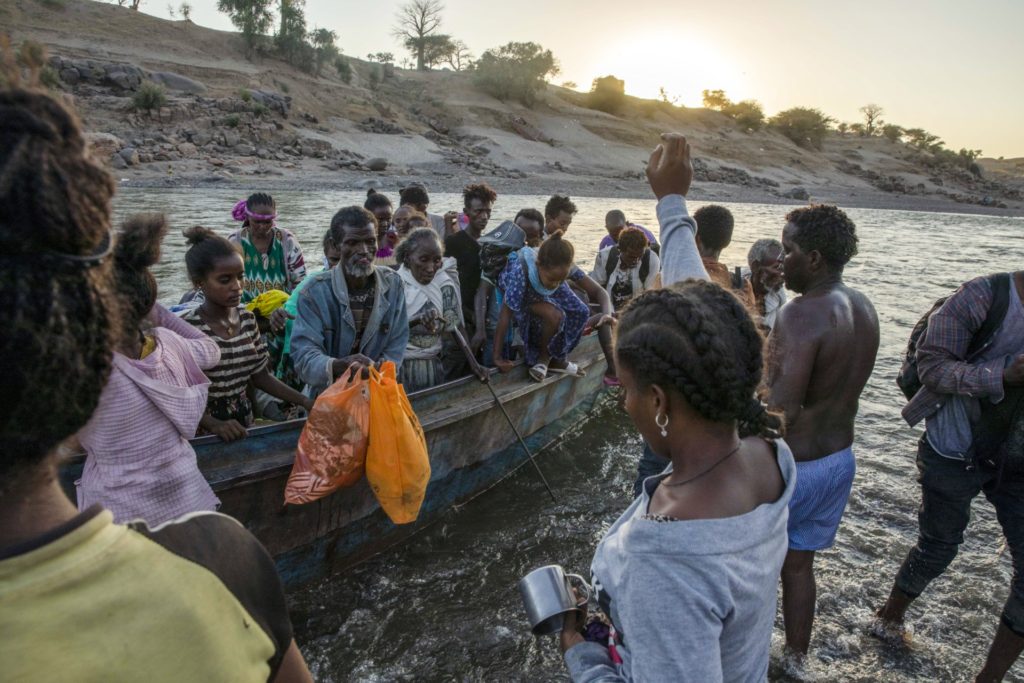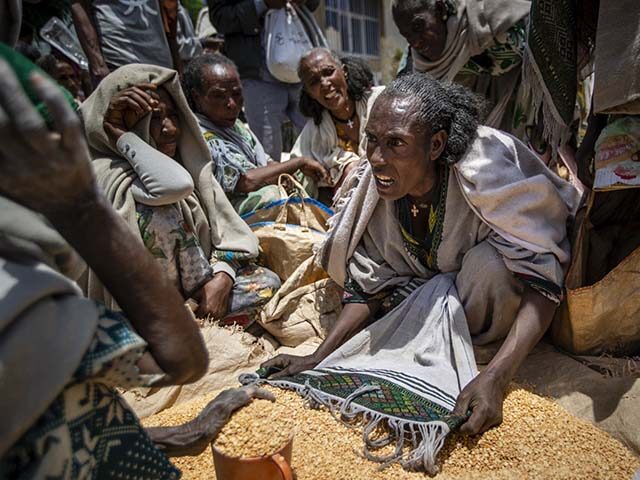Internally displaced persons (IDPs) in Ethiopia’s Tigray region staged massive demonstrations on Tuesday to protest delays in returning to their homes, the continued presence of hostile tribal militia forces on their lands, and the suspension of humanitarian aid.
Protest organizer Yibrah Yemane told the Addis Standard the IDPs want “quick solutions” from the Ethiopian federal government, the Tigrayan government, and international organizations because their situation is dire.
“Following the suspension of humanitarian aid, IDPs have become vulnerable to hunger and different diseases,” Yibrah said.
“It has been eight months since we received humanitarian aid, and we are dying because of that. We are protesting to raise our voices demanding the resumption of suspended aid. We want to return home, and as such urge the federal government to withdraw non-ENDF forces from our areas,” said Melakeselam Kiros, a demonstrator in the Tigrayan capital of Mekelle.
The ENDF is the Ethiopian National Defense Force, the federal army. The central government under Prime Minister Abiy Ahmed fought a brutal civil war against the rebellious Tigrayans from November 2020 through November 2022.

Ethiopian government soldiers ride in the back of a truck on a road near Agula, in the Tigray region of northern Ethiopia Saturday, May 8, 2021. (AP Photo/Ben Curtis)
Militias from Ethiopia’s many feuding tribes became involved on both sides and the central government was assisted by troops from neighboring Eritrea, which harbors deep animosity toward the Tigrayans. All parties to the conflict have been credibly accused of war crimes, including ethnic cleansing. Sporadic fighting continued after the formal declaration of a ceasefire in November 2022.
The non-ENDF forces Tigrayan IDPs are most immediately concerned with are ethnic militias from the rival Amhara tribe. The civil war displaced huge numbers of Ethiopians, especially in the Tigray region, where human rights groups say the Amhara and their allies conducted an ethnic cleansing campaign that drove some 70,000 Tigray residents across the border into Sudan.
Many of those refugees say they are afraid to return home, because they face persecution and they believe the civil war could erupt again at any moment. Sudan is going through its own brutal civil war at the moment, so Ethiopian refugees are caught between the proverbial rock and hard place.
The U.N. High Commissioner for Refugees (UNHCR) estimated Sudan was hosting 1.1 million refugees when its civil war erupted in April. Since then, over 700,000 people have been displaced in Sudan, with about 200,000 of them fleeing the country entirely. Camps housing Tigrayan refugees have been hit hard by food shortages and inflation.
“This is devastating. Being in Sudan was never the goal for the Tigrayans. This was just the opportunity to survive. Right now, they are trapped in another war, experiencing devastation after devastation,” Tigray Action Committee co-founder Maebel Gebremedhin, who was herself born in a Sudan refugee camp in the 1980s, told Arab News on Tuesday.
Ethiopian and Eritrean refugees – many of whom were living in Tigray when the Ethiopian civil war broke out, and were treated with exceptional brutality by invading Eritrean forces who held them in contempt – wrote an open letter to UNHCR on Tuesday asking to be relocated to a safe third country, because conditions in Sudan are deteriorating and they do not feel safe in Ethiopia.
“As refugees, we have suffered from atrocities committed against us by the army and commanders while we were in Khartoum. We have experienced kidnapping, violence, torture, arbitrary arrests and exploitation by the Sudanese police,” the letter said.

Tigrayan refugees arrive on the banks of the Tekeze River on the Sudan-Ethiopia border in Hamdayet, eastern Sudan on December 2, 2020. (AP Photo/Nariman El-Mofty)
The refugees said they have received no assistance from UNHCR in over a month, even though their number includes “mothers who just gave birth, women with young children, elders, and sick and disabled people.”
Humanitarian aid was suspended to the Tigray region on May 1 because so much of the food intended for starving IDPs was stolen. The World Food Program (WFP) said food distribution in Tigray “will not resume until WFP can ensure that vital aid will reach its intended recipients.”
The U.S. Agency for International Development (USAID) on May 3 announced the “difficult decision” to “pause all USAID-supported food assistance in the Tigray region until further notice.”
“The United States is the largest humanitarian donor to Ethiopia, and we remain committed to the Ethiopian people. Recently, however, USAID uncovered that food aid, intended for the people of Tigray suffering under famine-like conditions, was being diverted and sold on the local market,” the agency said.
“This diversion has dealt yet another blow to innocent civilians suffering needlessly due to the recent conflict in northern Ethiopia, where millions of people are experiencing acute food insecurity,” USAID lamented.
The demonstrators filling Tigray’s cities on Tuesday demanded both the local and federal government step up their efforts to halt food theft so the aid shipments can resume. The Ethiopian Civil Society Organizations Council (ESCSOC), a coalition of Ethiopian humanitarian and civil rights groups, pleaded with aid groups to resume shipments immediately because refugees are beginning to die of starvation.
“As a matter of principle and in the context where millions of people need urgent food support, the continued suspension of the food aid would do more damage than good,” the ESCSOC said last week.

COMMENTS
Please let us know if you're having issues with commenting.